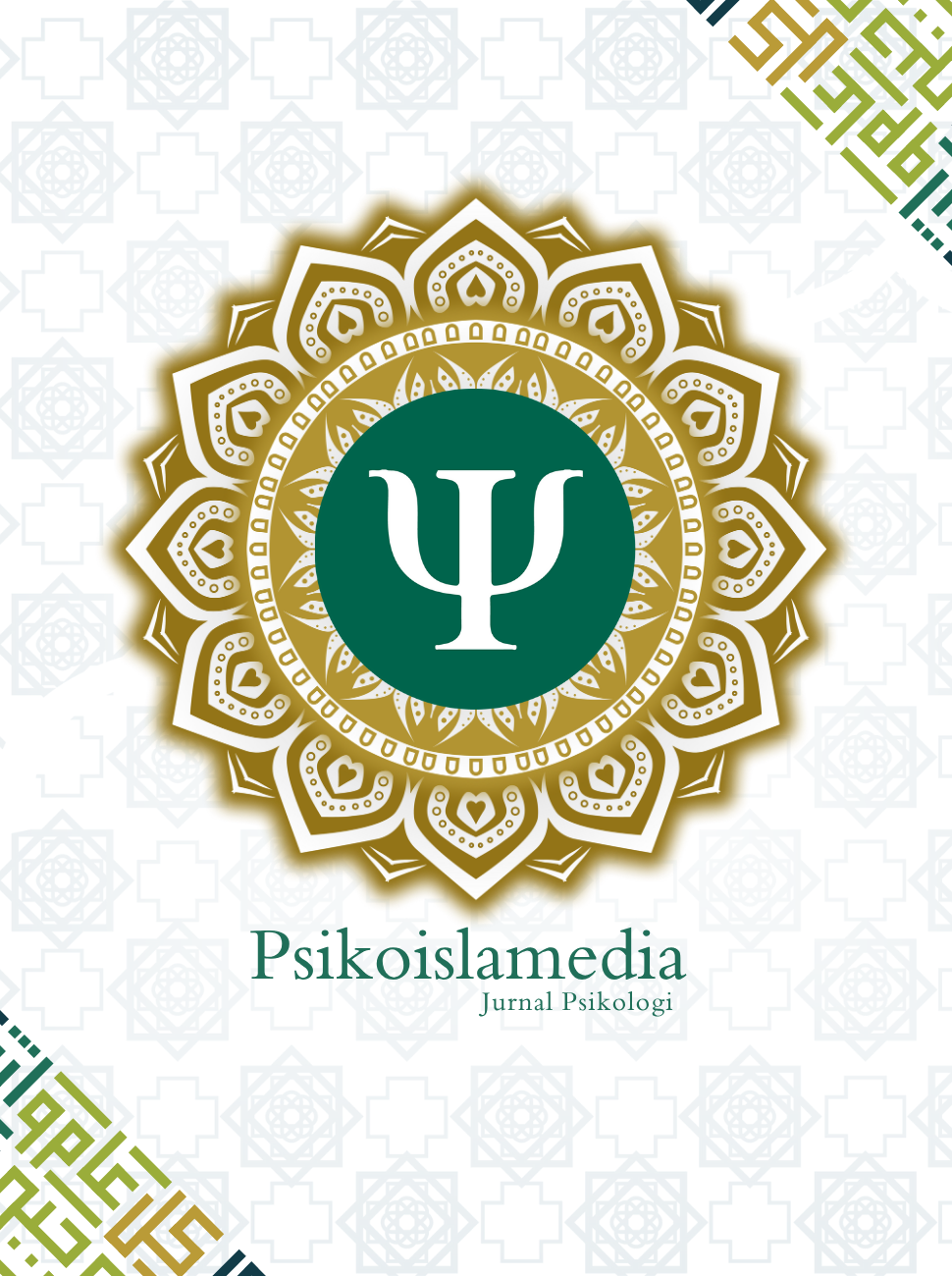THE ROLE OF SPIRITUAL INTELLIGENCE ON ACHIEVEMENT MOTIVATION
DOI:
https://doi.org/10.22373/psikoislamedia.v8i2.20322Keywords:
Spiritual Intelligence, Achievement MotivationAbstract
Spiritual Intelligence is vital because it is the highest Intelligence in humans, which includes all the Intelligence that exists in humans. The Intelligence to judge one’s actions or way of life is more meaningful than others. This study aims to determine the relationship between spiritual Intelligence and student achievement motivation at MTsS Babun Najah Banda Aceh. The type of research is quantitative research. The population in this study were MTsS Babun Najah students, a total of 307 people. The Proportionate Stratified Random Sample was used, and obtained a sample of 75 students. The data analysis technique used is correlation analysis and data collection using a Likert Scale Model. The research result showed a relationship between spiritual Intelligence and achievement motivation, meaning that the hypothesis that the researcher proposes is accepted. The correlation analysis showed that spiritual Intelligence with achievement motivation has a positive relationship or correlation with a Pearson Correlation value of 0,640 and a signification value of 0.000, meaning the higher spiritual Intelligence possessed by a person, the higher achievement motivation. Conversely, the lower the spiritual intelligence, the lower the achievement motivation.
References
Agustian, A, G. 2008. The Secret to Success in Building ESQ Power, An Inner Journey Through Ihsan. Jakarta: Arga.
Aji, S. M. (2013). The Influence of Achievement Motivation on Accounting Learning Achievement. Thesis. Semarang: Faculty of Economics, Semarang State University.
Anni, C., T. (2004). Psychology of Learning. Semarang: UPT MKK UNNES
Buzan, T. (2003). The Power of Spiritual Intelligence, Ten Ways to Become a Spiritually Smart Person. Jakarta: PT Gramedia Pustaka Utama.
Chaerani, N. (2011). The Relationship between Achievement Motivation and Mathematics Learning Outcomes of Global Islamic School Middle School Students. Thesis. Jakarta: Faculty of Tarbiyah and Teacher Training, UIN Syarif Hidayatullah.
Dembo, M. H. 2000. Motivation and Learning Strategies for College Success: A Self Management Approach. London: Lawrence Erlbaum Associates, Inc.
Hasiah, I. (2005). The Influence of Achievement Motivation on the Learning Outcomes of Maritime Science Polytechnic (PIP) Cadets. Education Journal. Vol 6. No 2.
Notoatmodjo, S. 2009. Health Promotion and Behavior. Jakarta: Rineka Cipta.
Sepfitri, N. (2011). The Influence of Social Support on the Achievement Motivation of MAN 6 Jakarta Students. Thesis. Jakarta: UIN Syarif Hidayatullah.
Sukidi. (2004). The Secret to a Successful, Happy Life, Why SQ is More Important Than IQ, EQ. Jakarta: Gramedia.
Wardi, K. (2010). The Relationship Between Spiritual Intelligence and Achievement Motivation in Al-Asmaul Husna Islamic Boarding School Students. Thesis. Malang: Faculty of Psychology, UIN Maulana Malik Ibrahim.
Zohar, D & Ian, M, I. 2007. SQ: Spiritual Intelligence. Bandung: Mizan.
Downloads
Published
Issue
Section
License
Authors who publish in this Journal agree to the following terms:
- Authors retain copyright and grant the journal right of first publication with the work simultaneously licensed under Attribution-ShareAlike 4.0 International (CC BY-SA 4.0) allows others to share the work with an acknowledgment of the work's authorship and initial publication in this journal.
- Authors are able to enter into separate, additional contractual arrangements for the non-exclusive distribution of the journal's published version of the work (e.g., post it to an institutional repository or publish it in a book), with an acknowledgment of its initial publication in this journal.
- Authors are permitted and encouraged to post their work online (e.g., in institutional repositories or on their website) prior to and during the submission process, as it can lead to productive exchanges, as well as earlier and greater citation of published work. (See The Effect of Open Acces)














